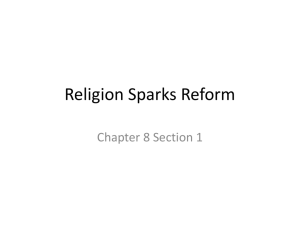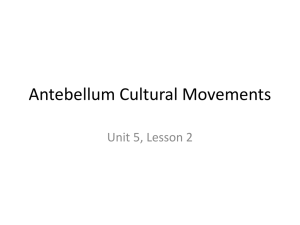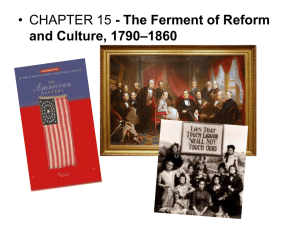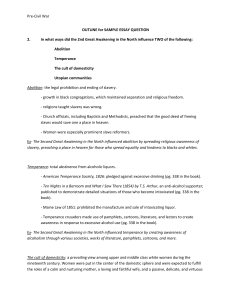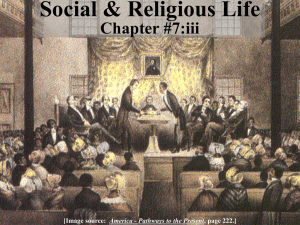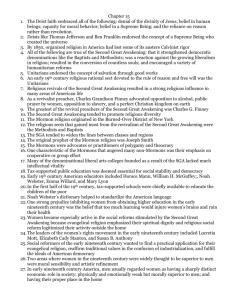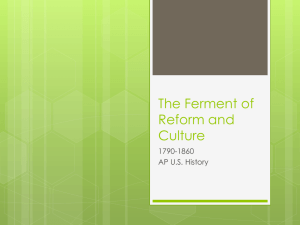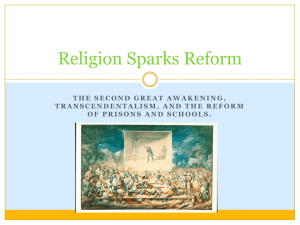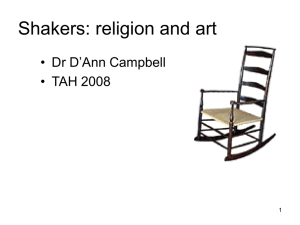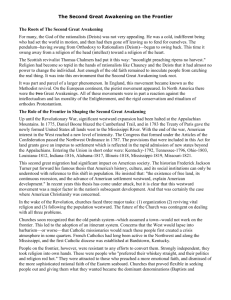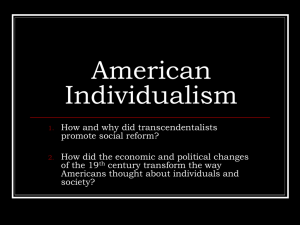The Second Great Awakening and Utopian Societies PPT
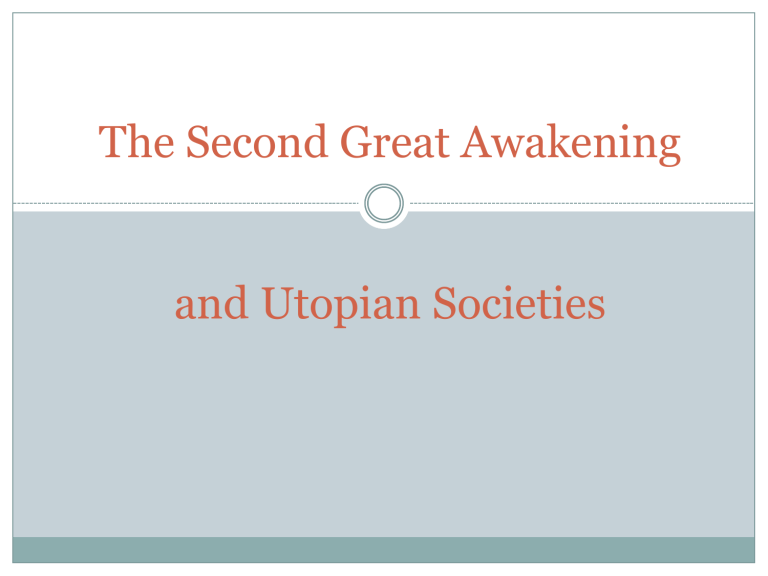
The Second Great Awakening and Utopian Societies
The Second Great Awakening
Around 1800 – 1830’s
Revival of the Great Awakening of the early 18 th century
Emphasis on personal piety over schooling and theology
A religious movement during the 19 th century which expressed that every person could be saved through revivals
Led to the formation of new denominations
Surge in church membership of Methodists and
Baptists
Arose in several places:
New England – social activism
New York – growth of new denominations
Appalachian region (KY and TN) – energized Presbyterians,
Methodists and Baptists
Camp meetings
First in South-Central KY in June 1800
Revival’s effects consisted of two main strains:
The virtues and behavior of the middle class – a strong work ethic, frugality – were encouraged
The ability of individuals to make changes to their lives sparked reform movements
The movement spread through southern OH, KY, and TN
Among Baptists, ordinary farmers frequently felt they were called by God to become preachers
The Bible Belt of the South was born
The Second Great Awakening left a lasting impact on
American Society
Established Churches
Social Reform
Utopian Societies
In the early 1800’s, more than 100,000 individuals formed utopian societies
Utopian Society – Ideal or perfect society
1820-1860 – large attempt to create numerous communities that would serve as perfect societies
The people that formed these communities believed that the way to a better life was to separate themselves from the corrupting influence of the larger society
Practiced cooperative or communal living and rejected the idea of private property
Mormons
Oneida Community
The Shakers
New Harmony
Brook Farm
The Shakers
Located in several states
Got their name from a ritual shaking dance that members performed
Reached their peak in the mid-1800’s with 6,000 members
Began in England in 1747
Led by Ann Lee – “Mother Ann”
Lee moved with her followers to America in 1774
The community quickly grew
Believed in absolute celibacy
Eventually, the numbers dwindled
3 Shakers left today
Shaker Village of Pleasant Hill in Harrodsburg, KY
– living history museum
Brook Farm
Community near Boston
Based on social or political ideologies
Founded by George Ripley in 1841
Harmony with nature, communal living, and hard work
Collapsed in 1846 after a huge fire destroyed a large building that was uninsured
The Farm could not continue
Influential in fights for women’s and labor rights
